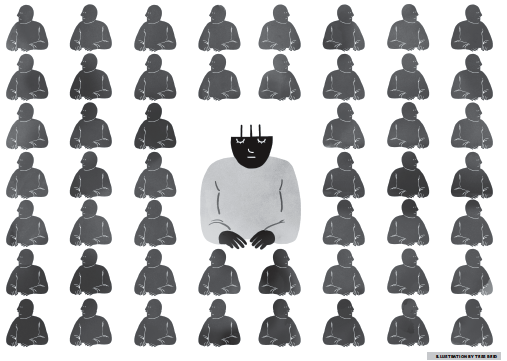Right from when I first heard the story of a male student at York requesting, on religious grounds, to be excused from group work with women for an assignment for his online course, something didn’t feel right to me about the student’s request, but I couldn’t pinpoint what.
The neat thing about news stories like these is that they serve to highlight cultural sensitivities and misgivings, and create a dialogue on topics and problems we need to collectively work on as a society.
Yet when I took on this particular hot conversation for this week’s editorial, I realized that was exactly the problem.
It was a conversation, a debate, a question. It wasn’t a no-brainer. But it should have been.
If the word “women” had been replaced in the student’s request with the word “Jews” or “Asians” or “homosexuals,” the answer would have been an obvious, resounding “no.” The accommodation would have been a clear case of racism, homophobia, or another form of discrimination.
A clear example of sexism or misogyny isn’t as threatening or problematic to us as any of these, yet we shudder at even the slightest hint of racism or homophobia. By having this conversation, we are saying the equal status of women and the respect they are thus entitled to isn’t absolute and unconditional somehow. It’s up for debate.
And that in and of itself is what is most troubling to me about this whole situation. Not that this student was asking for permission to avoid life as we know it in Canada, where men and women interact in an equal, open manner on a daily basis, in public and private environments.
Not that religious accommodations can be granted without a student having to disclose their religious beliefs and justify their request, even when university policy requires extensive documentation and proof for medical and compassionate accommodations—two matters that are arguably much more private and personal than a person’s religion.
No. When considering this request, we must remember we still live in society where men routinely make more money than women in the same position, where a woman’s appearance is always relevant and is often second to her accomplishments, and where male contraception can be found everywhere from Wal-mart to gas stations, but most female contraception is always a prescription, a health plan, a medical practitioner away.
This society cannot even consider allowing the excusable segregation of men and women, even on such a small scale. Not when women’s rights and social statuses may be equal in name and policy, but not in practice. Putting women’s status and social role on hold, even for a moment, is unacceptable and shouldn’t be up for discussion.
Sexism is just as real and disturbing as racism, homophobia, and religious discrimination.
It should be just as upsetting and intolerable. Maybe that’s the conversation we should really be having.
Vanessa Del Carpio
Recruitment Manager



